Know more:
José Nunes
(N. 28 December, 1916 - M. 23 February, 1979)José Nunes Alves da Costa, known as José Nunes, was born in Porto, parish of Paranhos, on the 28 December 1916. His father, an army officer and band conductor at the no longer extant Infantry 18 Regiment, died when he was very young.
At 5 José Nunes began to learn how to finger Fado Menor on the Portuguese guitar and moved to Lisbon. There he registered at the Instituto dos Pupilos do Exército, where he stayed until he was 16, finishing a course in Electrical Engineering and learning how to play the Portuguese guitar on his own. He then visited frequently an lottery house and tavern at Rua dos Cavaleiros, which belonged to Costa Delgado (formerly an officer of the Criminal Investigation Police). He had a Portuguese guitar and a Spanish guitar and a special room for hosting the fado-loving "folks" who met there every afternoon.
At 14 he played at “Café Ginásio”, “Café Luso” (in Avenida da Liberdade) and “Café Mondego”. He made his professional debut at this venue in 1936, accompanied on the Spanish guitar by Alfredo Mendes. He remained at this fado house until 1945, when it changed its name to “Retiro do Marialva”.
In 1935 José Nunes joined the Orquestra Aldrabófona, which played Portuguese folk music.
He performed at “Solar da Alegria”, under the artistic supervision of Júlio Proença, at the time of the famous nights of "Fado Antigo", forming a guitar ensemble composed of Casimiro Ramos, Alfredo Mendes and Pais da Silva. He also performed for 7 years at “Café Luso” (Travessa da Queimada).
Meanwhile he found a job at Companhias Reunidas de Gás e Electricidade, where he worked as deputy head of the general gas network. A diligent employee, he always managed to match his artistic activity with his professional duties. He had such righteous personality that some people considered him a bad tempered person. Nevertheless he managed to make many friends throughout his life.
Mastering remarkable technical skills, José Nunes performed live at the first fado radio broadcasts in 1935/36, at Rádio Graça, and in 1936/37, at Rádio Luso. For 30 years he maintained a programme on Emissora Nacional which would encourage the call of the next generation of Portuguese guitar players.
José Nunes was also the first Portuguese guitar player to perform at television network Radiotelevisão Portuguesa, still during its experimental period in 1956. Afterwards he performed in programmes «O fado do português» (1972) and «Fado vadio» (1979).
He also performed in cinema, accompanying the voices of Paquita Rico and Carlos Ramos in the film «Lavadeiras de Portugal» (1956).
He showed his talent mainly at fado houses and accompanying fado singers. Also however José Nunes participated in private feasts and public shows in Lisbon and nationwide, namely as member of the artistic casts of programmes such as «Soldados de Portugal» (1948/1951) and «Serões para trabalhadores», a 11-year collaboration. He also played at the «Robbialac» fado programmes, accompanying fado singer Maria Pereira with Spanish guitar player Miguel Ramos.
Among other fado singers, he accompanied Beatriz da Conceição, Deolinda Rodrigues, Fernanda Peres, Júlia Barroso, Julieta Brigue, Maria Albertina, Maria de Fátima Bravo, Natalina Bizarro, Virgínia Soller, Alfredo Marceneiro, Américo Lima, Carlos do Carmo, Fernando Farinha, Carlos Zel, João Ferreira Rosa and Vicente da Câmara. In the 1960’s he accompanied Amália Rodrigues in many shows in Portugal and abroad and "gave up accompanying due to his fear of flying ".
He was the partner of great Spanish guitar players, namely Alfredo Mendes (with whom he made his debut), Castro Mota, Domingos Silva, Agostinho Dias, Francisco Perez Andion (Paquito), Humberto de Andrade, Joel Pina, José Inácio, José Maria Nóbrega, Júlio Gomes, Martinho d'Assunção and Pais da Silva, among others.
He recorded more than fifty records "all of them bearing witness to the sensitivity, musicality and perfect, personal and sophisticated execution of his performances ", according to Eduardo Sucena.
His originals are "Ana Cristina", "A Ti Manuel dos Santos" (with lyrics by Lavadinho Mourato, sung ty Julieta Brigue), "Caixa de Música", "Caixinha de Música", "Chula de Sabrosa", "Divagações no Fado Mayer", "Fado Bolero", "Fado Micas", "Fado Pedro", "Fado Pereiró", "Fado Quina", "Valsa Fantasia", "Valsa Filipa", "Variações no Fado Ana Maria", "Variações no Fado João de Deus", "Variações no Fado Lopes", "Variações no Fado Paloma", "Variações Nostálgicas", "Variações Num Comboio", "Variações em Lá Menor" (1 e 2), "Variações em Lá Maior" and "Vira de Frielas".
His many friends paid him a tribute on the 3 May 1964, at Tertúlia da Festa Brava.
At the same venue he was recalled on the 19 May 1979 and his portrait hanged, "in recognition of the generous way in which he collaborated in that house’s gatherings for many years."
He died of a stroke on the 23 February 1979, at Hospital de Santa Maria.
Today José Nunes is considered one of the most creative and influential Portuguese guitar players by other musicians like Fontes Rocha, António Chaínho, Carlos Gonçalves, José Luís Nobre Costa. António Parreira, José Pracana, António Luís Gomes, Alcino Frazão and Sebastião Gomes Pinto (Pinto Varela), though some of them later adopted their own style.
Source:
Sucena, Eduardo (1992), “Lisboa, O Fado e os Fadistas”, Lisboa, Vega;
Cabral, Pedro Caldeira (1999), “A Guitarra Portuguesa”, Col. “Um Século de Fado”, Lisboa, Ediclube;
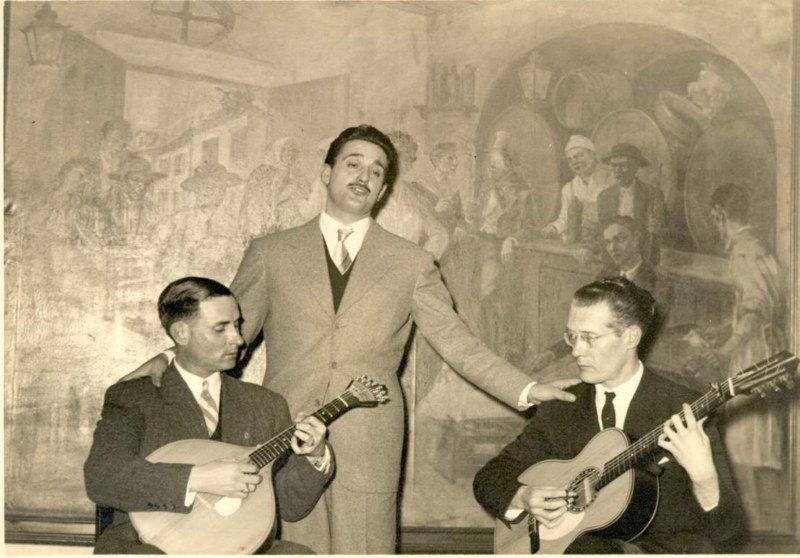
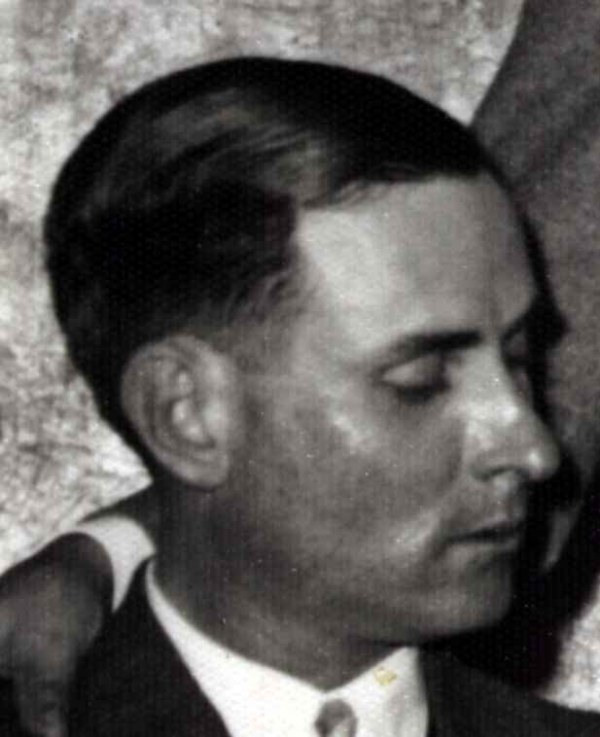
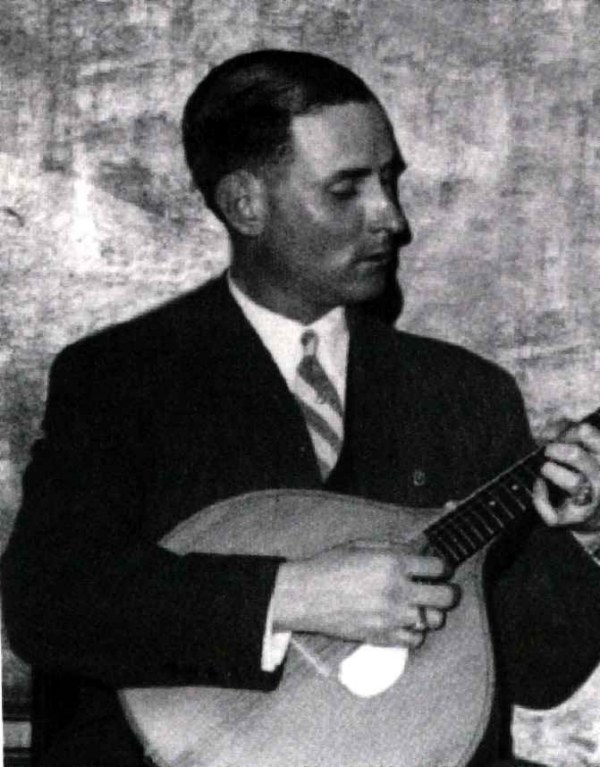
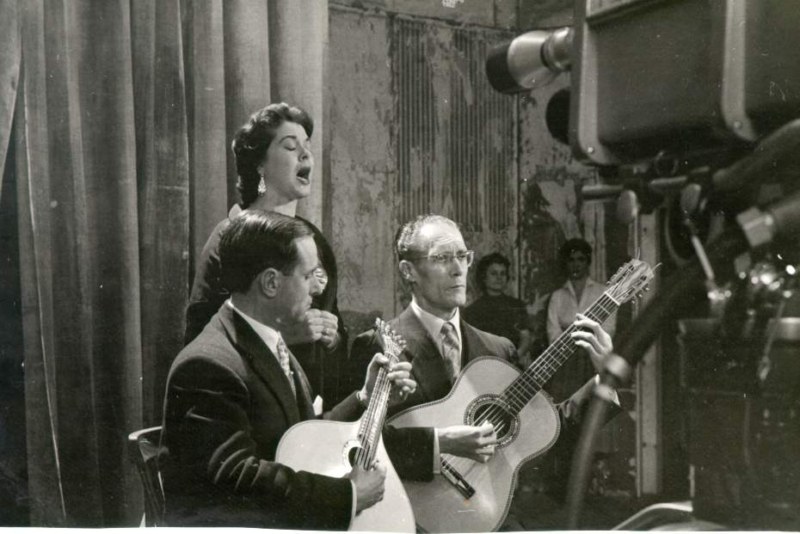
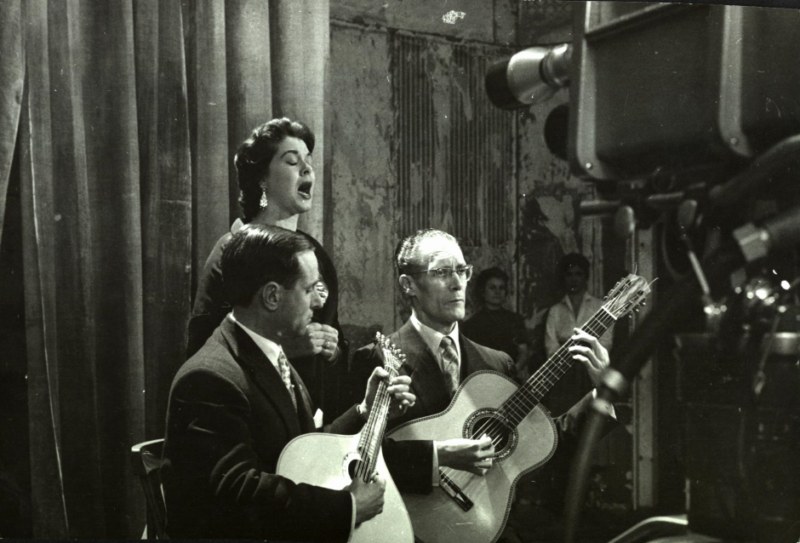
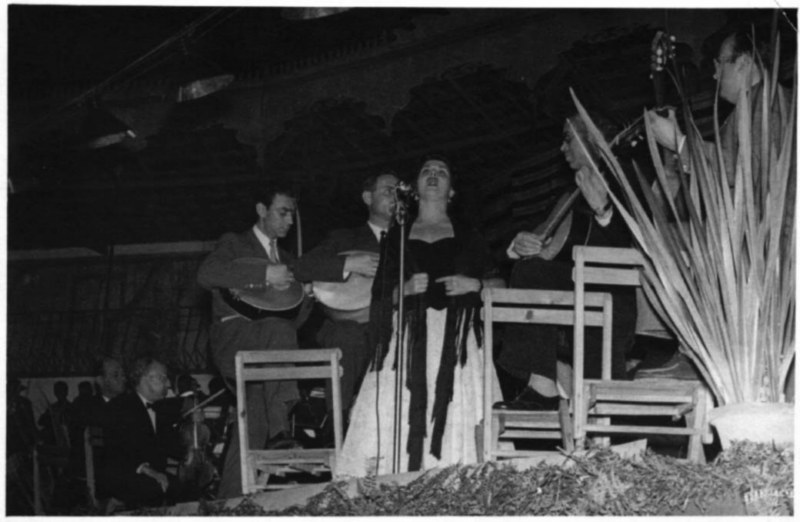
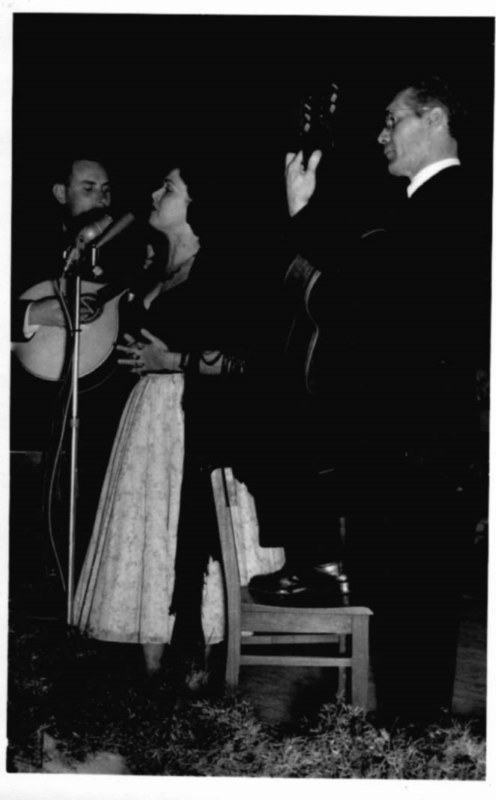
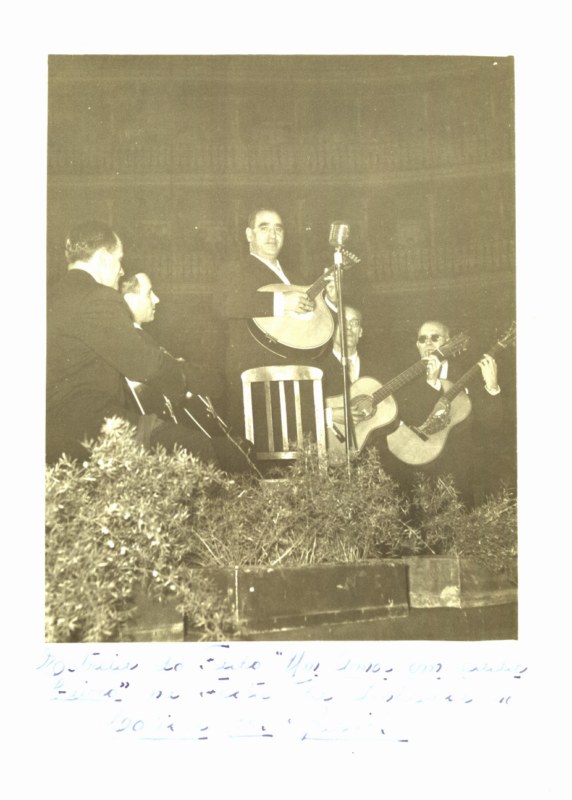
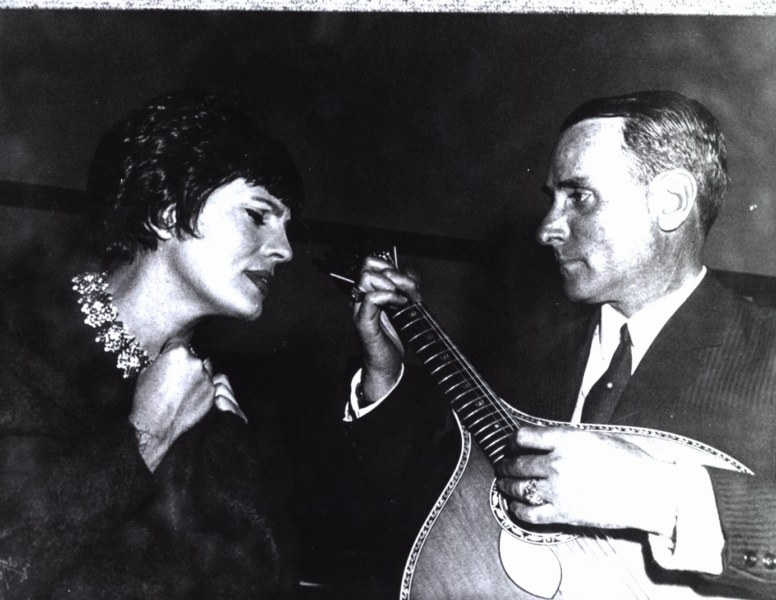
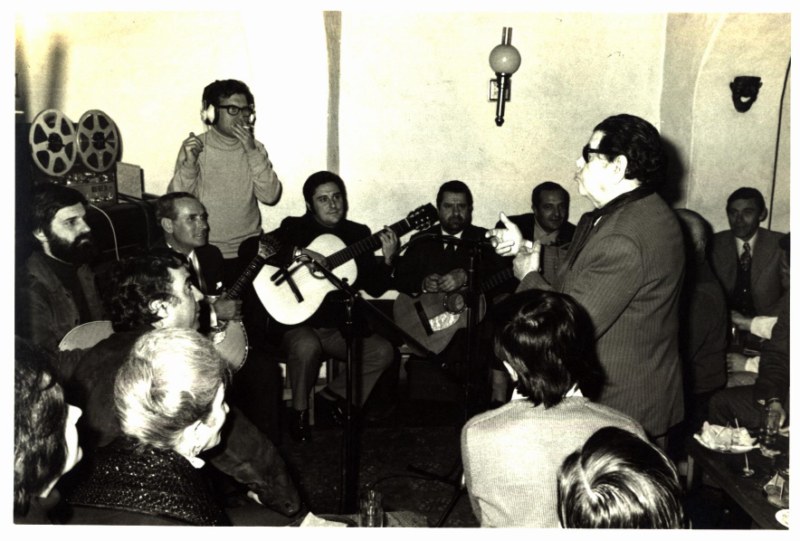
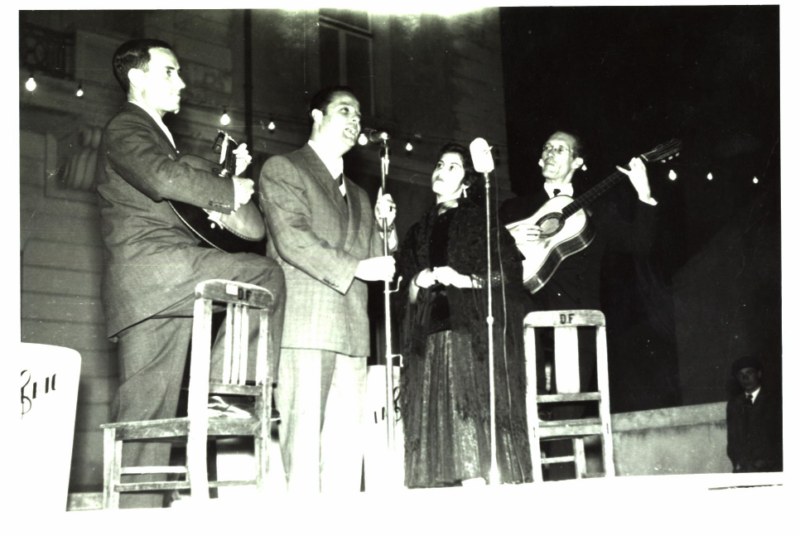
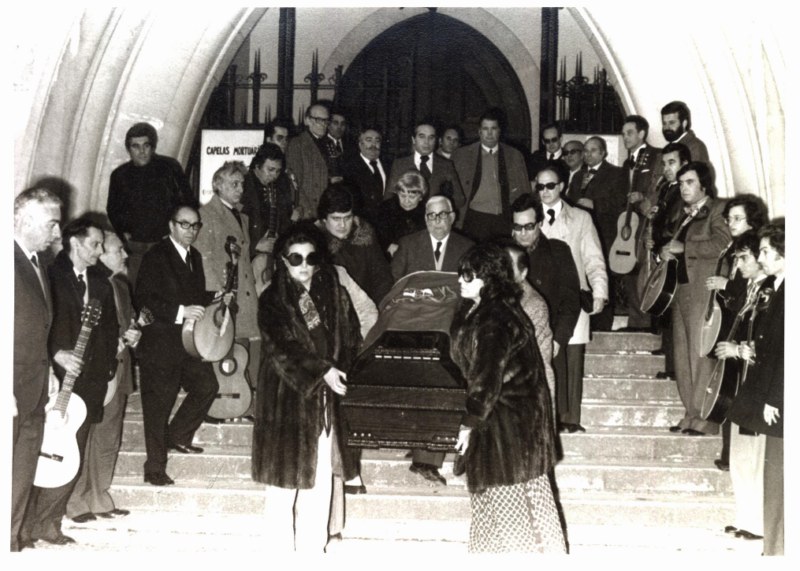
-
Caixinha de Música José Nunes (José Nunes)